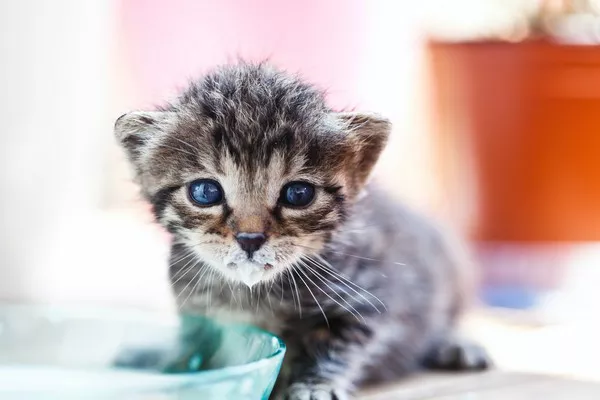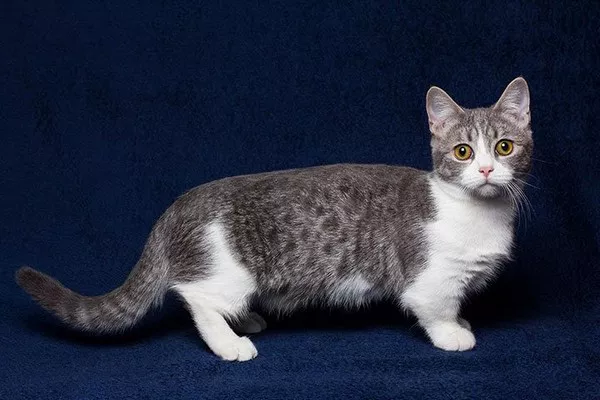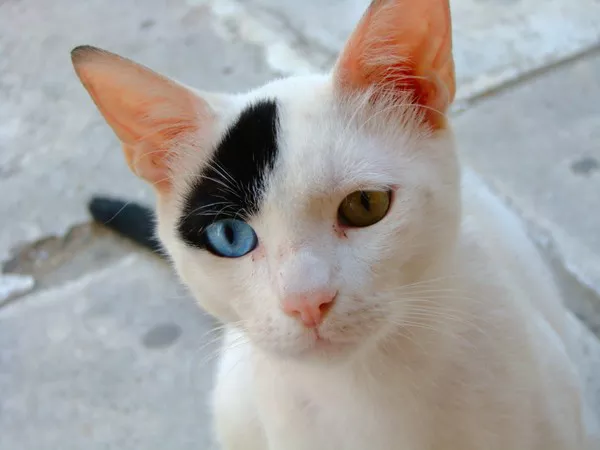Returning home after cat boarding can be an emotional experience for both cats and their owners. After spending some time away from their familiar surroundings, cats may exhibit unusual behavior upon their return. One common behavior that many pet parents notice is an increase in clinginess. If your cat seems more attached to you than usual or follows you everywhere, it’s important to understand that this is often a normal reaction to the changes they’ve experienced. In this article, we’ll explore why your cat might act clingy after boarding and how you can help them readjust to life at home. We’ll also address how you can provide comfort and care during this transition period, ensuring that your feline companion returns to feeling secure and happy in their home environment.
Possible Reasons for Clinginess
Cats are creatures of habit and thrive in a stable, predictable environment. Boarding can be a significant disruption to their routine, and it may lead to behaviors like clinginess, anxiety, or even withdrawal. Let’s look at some of the primary reasons your cat may be acting this way after their boarding experience.
Separation Anxiety
One of the most common reasons cats become clingy after being boarded is separation anxiety. When a cat is separated from their owner and placed in a boarding facility, they experience a period of detachment from their primary caregiver. This detachment can be stressful for some cats, especially if they have a strong attachment to their owner. Separation anxiety is a well-documented condition in pets, and it can cause a range of behavioral changes, including excessive clinginess, vocalizing, and even destructive behavior.
When your cat is returned to you after being boarded, they may feel a strong need for reassurance and comfort. They may seek extra attention and cling to you in an effort to restore the bond they’ve felt has been broken during the separation. This behavior is often temporary, and with the right support, your cat should gradually adjust back to their normal routine.
Adjustment Period
Another important factor contributing to post-boarding clinginess is the adjustment period. While your cat’s home environment is familiar, they may still need some time to reacquaint themselves with their surroundings after spending time in a new and different space. Boarding can introduce unfamiliar smells, sounds, and people into your cat’s life, and returning home doesn’t immediately erase the stress of being in an unfamiliar place.
For many cats, it takes time to feel fully comfortable in their home again, and clinginess is a natural reaction to this period of transition. Your cat may feel confused, disoriented, or insecure, which leads them to seek out the safety and comfort of your presence. This type of behavior is not unusual and should diminish as your cat settles back into their environment.
Stress and Routine Disruption
The stress of being in a boarding facility can also be a contributing factor to your cat’s clinginess. Boarding often disrupts a cat’s daily routine, including feeding schedules, playtimes, and even their sleep patterns. The unfamiliarity of the new environment, combined with the potential for changes in their care routine, can cause heightened stress levels. When a cat is stressed, they may turn to their owner for emotional support, leading to more affectionate and needy behavior than usual.
Additionally, if your cat is used to a certain level of attention at the boarding facility—whether it be from the staff or other animals—they may seek similar attention from you when they return home. This is particularly true for cats who enjoy attention and interaction. After receiving positive reinforcement from the boarding facility, they may expect that same level of affection when back in the home setting, increasing their clingy behavior.
Positive Reinforcement
Sometimes, a cat’s clinginess after boarding may be related to the positive experiences they had during their stay. While this might not always be the case, it’s possible that the boarding facility provided an environment where your cat received extra attention, playtime, or even the companionship of other animals. If this was the case, your cat might be seeking similar interactions once they are back home.
Cats that are used to being the center of attention or receiving affection from multiple sources may try to recreate that environment after boarding. They may follow you around, seek your lap, or demand more playtime as a way to fill the gap left by their experiences while at the boarding facility.
How to Help Your Cat Readjust
While it’s natural for your cat to be clingy after boarding, there are several strategies you can use to help them feel secure and comfortable again in their home environment. Below are some tips to help your feline friend readjust to life back at home after their time at the boarding facility.
Gradual Reintegration
It’s important to help your cat gradually reintegrate into their home environment. Cats tend to be sensitive to sudden changes, so it’s helpful to ease them back into their routine. Give your cat some time to adjust to being back home by allowing them to explore their surroundings at their own pace. You can also provide them with a quiet, calm space where they can retreat if they feel overwhelmed.
If your cat seems particularly anxious, consider limiting interactions with other pets or people initially. This will allow your cat to focus on reconnecting with you and reestablishing their sense of security in their familiar environment.
Provide Comfort
Creating a calm, soothing atmosphere can help your cat feel secure after their time away. Ensure they have access to their favorite resting spots, such as their bed, blankets, or familiar toys. The presence of these familiar items can help comfort your cat and remind them that they are safe at home. If your cat seems to prefer being near you, allow them to be close by and provide gentle reassurance, such as petting or soft talking.
For some cats, a pheromone diffuser (such as Feliway) can also be beneficial. These products mimic natural pheromones that help cats feel relaxed and secure. You may want to consider placing a diffuser in the areas where your cat spends the most time.
Interactive Play
Interactive play is another effective way to help your cat release pent-up energy and reduce feelings of anxiety. Playtime provides both physical and mental stimulation, which can be beneficial for your cat’s emotional well-being. Use toys like feather wands or laser pointers to engage your cat in interactive play sessions. This will not only help your cat burn off any extra energy but also help strengthen the bond between the two of you.
In addition to helping with anxiety, interactive play can also offer a sense of routine for your cat, as it reinforces regular activity and stimulation.
Maintain Routine
Cats are creatures of habit, and maintaining a consistent routine is essential for helping them feel secure. As much as possible, try to keep your cat’s feeding, play, and sleep schedules consistent. Cats thrive on predictability, and knowing that they will be fed at the same time each day or have play sessions at the same time can provide them with a sense of stability.
Consistency in your interactions with your cat is equally important. Try to avoid making significant changes to your behavior or routine during the first few days after boarding. Stick to your usual habits and ensure that your cat feels like they are back in a stable, familiar environment.
Monitoring Behavior
It’s essential to monitor your cat’s behavior in the days and weeks following their return from boarding. While some clinginess is normal, it’s important to watch for any signs of prolonged stress, such as refusal to eat, excessive hiding, or behavioral changes that don’t improve over time. If your cat’s clinginess seems excessive or persists for an extended period, it may be worth consulting with your veterinarian. They can help determine if there are underlying health concerns or if the behavior is related to deeper emotional or behavioral issues.
Seek Professional Advice
If your cat’s clinginess or anxiety continues for an extended period, it may be time to seek professional advice. Your veterinarian may be able to offer guidance on how to help your cat cope with stress and anxiety after boarding. In some cases, they may suggest behavior modification techniques or recommend medication to help manage anxiety. If your cat is showing signs of severe stress or anxiety that impact their quality of life, don’t hesitate to reach out to a professional.
Understanding and Patience
It’s crucial to remember that your cat’s clinginess is likely temporary and a natural response to the stress and changes they have experienced. With patience, understanding, and the right support, your cat will most likely return to their usual self. Keep in mind that this period of adjustment is an opportunity to strengthen your bond with your cat by offering them the comfort and care they need during a time of uncertainty.
Positive Reinforcement
During this transitional period, make sure to provide your cat with positive reinforcement. Offering affection, praise, and rewards when they display calm and relaxed behavior can help them understand that they are safe and loved. Positive reinforcement can also help reestablish their confidence and sense of security in their home environment.
Cats are sensitive creatures, and your empathy and patience will go a long way in helping them feel more at ease after boarding.
Conclusion
Clinginess after cat boarding is a common behavior that many pet owners experience. It’s essential to understand that your cat’s clinginess is often a natural reaction to the separation, stress, and routine disruption they’ve encountered. By offering comfort, maintaining a consistent routine, and being patient with your cat, you can help them adjust back to their home environment. Always keep an eye on their behavior, and if necessary, consult with a veterinarian to ensure that your cat is healthy and happy. With time, your cat will return to feeling secure and confident in their familiar surroundings once again.
Related Topics



























